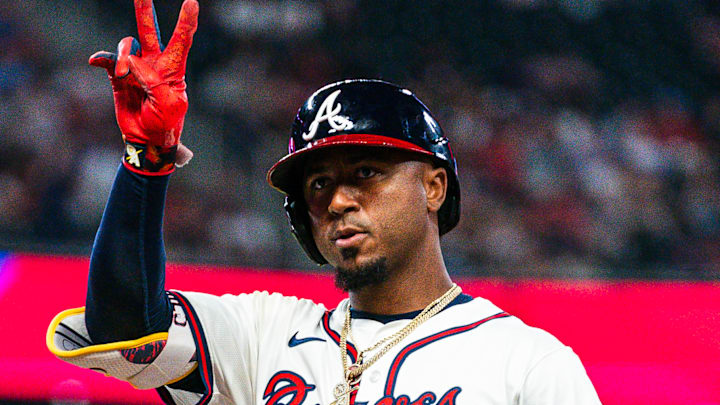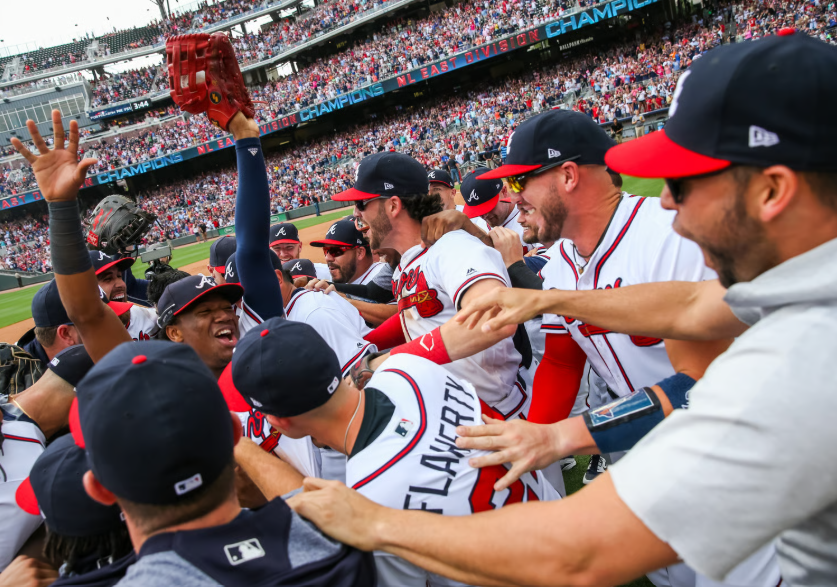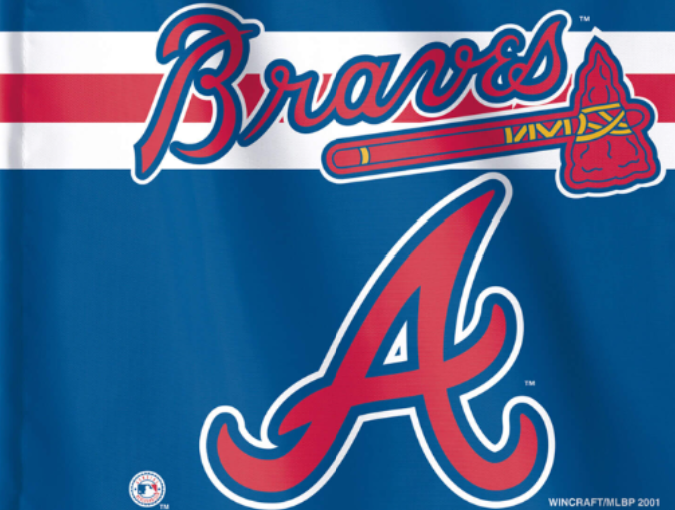The Atlanta Braves are facing a tough crossroads with one of their cornerstone players, Ozzie Albies. Once hailed as the most team-friendly contract in baseball, Albies’ \$7 million club options for 2026 and 2027 are no longer the easy “yes” they once seemed. As he enters his age-28 season, signs of physical decline—particularly due to persistent injuries—have cast doubt over his future role with the franchise. While he’s been a fan favorite and key clubhouse presence, production ultimately dictates longevity in a competitive roster.
Over the past three seasons (2022–2024), Albies has averaged only around 100 games per year, battling injuries like a broken toe and a broken wrist. These setbacks have visibly impacted his mobility, defensive range, and power at the plate. The wrist injury, in particular, appears to have sapped his offensive pop, resulting in 2025 being the worst statistical season of his career. His .222 batting average, .322 slugging percentage, and .619 OPS reflect a player in decline—metrics well below league average for a starting second baseman.

Advanced analytics paint an even grimmer picture. Albies ranks near the bottom of the league in nearly every important hitting metric: Bat Speed (7th percentile), Hard-Hit % (5th), Barrel % (9th), and Average Exit Velocity (7th). Even his expected stats (xBA, xSLG, xwOBA) linger in the bottom 20%. These aren’t just cold numbers—they reflect a growing gap between Albies’ production and expectations for a contending team.
While there’s always hope that Albies could rebound—especially given his proven track record during the Braves’ rise to prominence—history suggests that players with this kind of statistical and physical drop-off rarely regain their peak form, particularly when injuries are the driving force. His recent stretch of 735 plate appearances since 2024, in which he’s slashed just .239/.301/.371, suggests the sample size is large enough to take seriously.
Ultimately, Braves GM Alex Anthopoulos may be forced to make a deeply unpopular decision. Trading Albies or declining his options could open up payroll and a roster spot for a younger, more dynamic second baseman. As beloved as Albies is in Braves Country, sentimentality can’t outweigh production when World Series aspirations are on the line.



